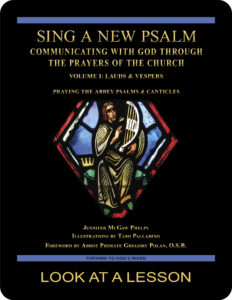vengeance (2)
 The Book of Sirach 28:1 (NABRE) focuses on vengeful people and God’s vengeance. On the surface, this seems like a bit of an odd sentiment as we much prefer to see God as merciful rather than vengeful.
The Book of Sirach 28:1 (NABRE) focuses on vengeful people and God’s vengeance. On the surface, this seems like a bit of an odd sentiment as we much prefer to see God as merciful rather than vengeful.
The Book of Sirach is one of the Old Testament books originally written in Greek rather than Hebrew, and so for a deeper understanding of what’s going on in this passage, we turn to the Greek text. The Greek word translated as vengeance comes from the Greek word ἐκδικέω (ekdikeo), a word built on a root that means “justice” or “right.” The Greek view of vengeance is one of making right or balancing a wrong rather than simple punishment.
The view isn’t of a punishing God but a God of justice. When a person continues to hold grudges and behave badly toward others, God takes that badly and balances the scales by returning that behavior in kind. The way we treat others is the way God treats us.
related topics: judgment; vengeance (1); woe
you also may like Volume I of our Psalms study
 Sing a New Psalm: Communicating with God Through the Prayers of the Church—Volume I: Lauds & Vespers provides an in-depth look at Psalms prayed in morning and evening liturgies. (Volume II, set for publication in 2024, looks at Vigils, Day Prayer & Compline.) The study is based on The Abbey Psalms and Canticles, a translation prepared by the Benedictine monks of Conception Abbey and published by the United States Conference of Catholic Bishops (USCCB). Click on the book’s cover to view a sample lesson.
Sing a New Psalm: Communicating with God Through the Prayers of the Church—Volume I: Lauds & Vespers provides an in-depth look at Psalms prayed in morning and evening liturgies. (Volume II, set for publication in 2024, looks at Vigils, Day Prayer & Compline.) The study is based on The Abbey Psalms and Canticles, a translation prepared by the Benedictine monks of Conception Abbey and published by the United States Conference of Catholic Bishops (USCCB). Click on the book’s cover to view a sample lesson.
 Click on the picture of the statue of Moses with horns (above) to learn more about Lost in Translation. A new entry is archived each Monday. Contact us to receive Lost in Translation by email every week. You may use any of the contact links on our website to ask Matthew a question.
Click on the picture of the statue of Moses with horns (above) to learn more about Lost in Translation. A new entry is archived each Monday. Contact us to receive Lost in Translation by email every week. You may use any of the contact links on our website to ask Matthew a question.
